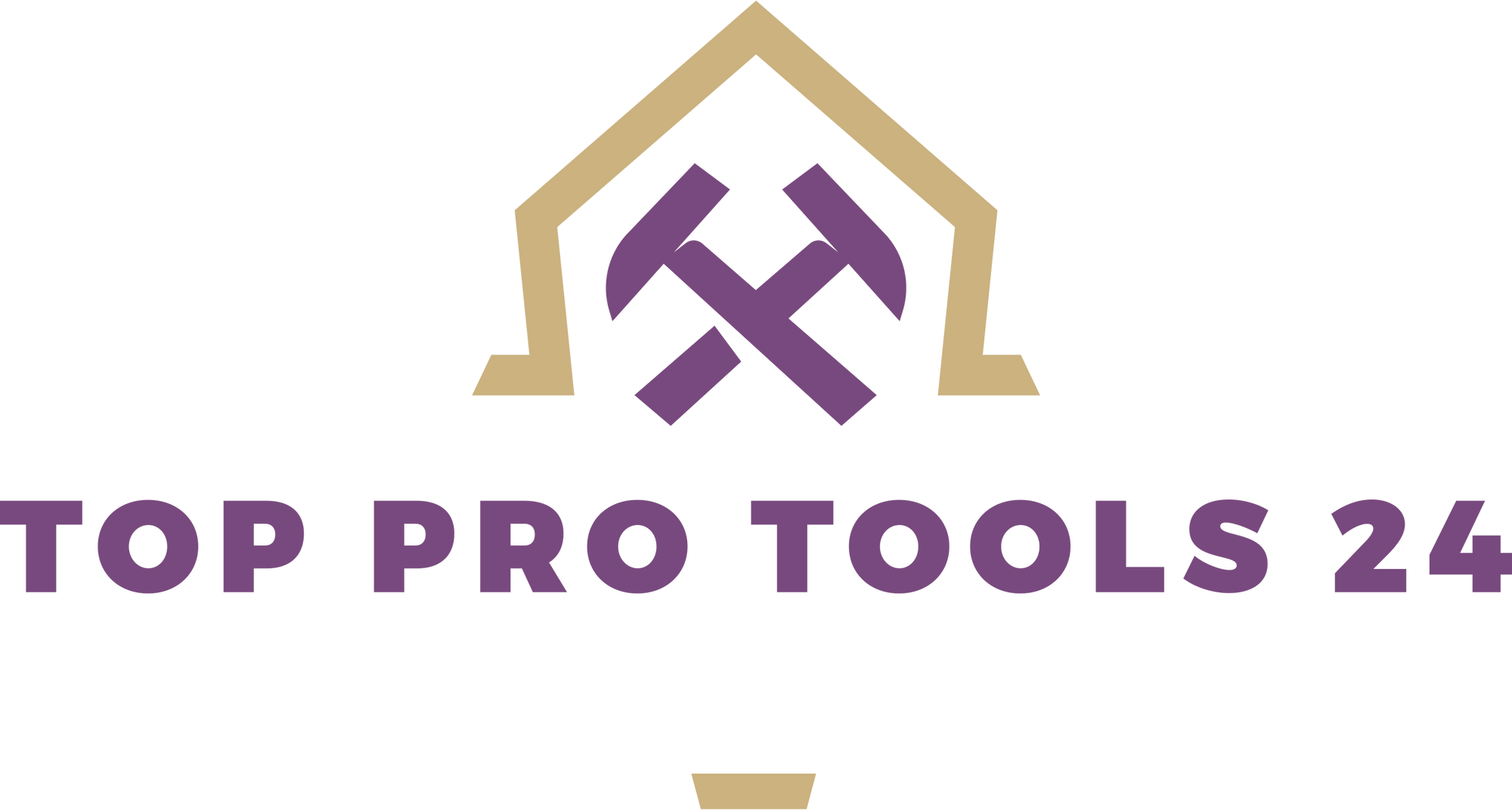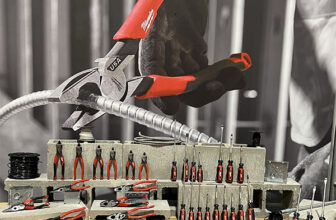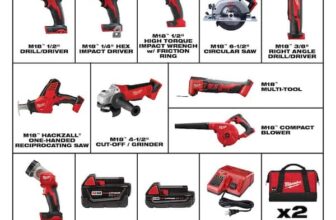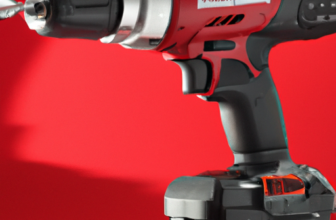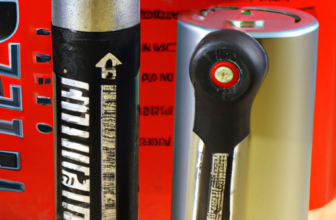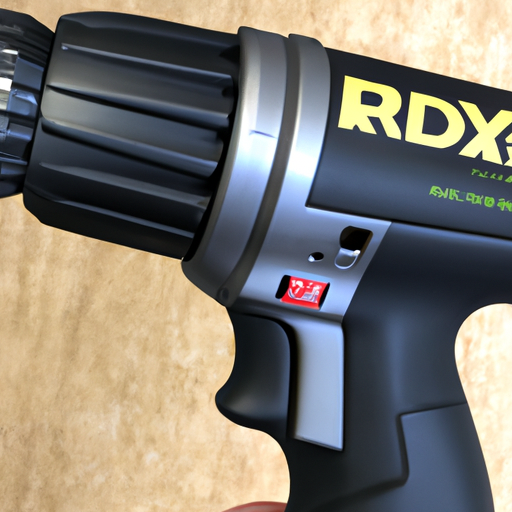
This post may contain affiliate links which means I may receive a commission for purchases made through links. Learn more on my Private Policy page.
Trying to decide between Ryobi and Milwaukee power tools? Look no further! This article provides an unbiased comparison to help you make the right choice. Whether you’re a DIY enthusiast or a professional contractor, choosing the right power tools is crucial for efficiency and quality results. With both Ryobi and Milwaukee being reputable brands in the market, we’ll weigh the pros and cons of each to help you make an informed decision. So, if you’re in the market for new power tools, keep reading to find out which brand is the best fit for your needs. Let’s get started!
Power tool brands: Ryobi and Milwaukee
Introduction to Ryobi and Milwaukee
When it comes to power tools, Ryobi and Milwaukee are two well-known brands that have gained a reputation for their quality and performance. Whether you are a professional or a DIY enthusiast, choosing the right power tool brand can make all the difference in the efficiency and effectiveness of your projects. In this article, we will provide an overview of Ryobi and Milwaukee power tools, compare their features and offerings, and help you make an informed decision on whether to buy Ryobi or Milwaukee power tools.
Overview of Ryobi power tools
Ryobi is a popular brand that offers a wide range of power tools for various applications. From cordless drills and impact drivers to saws and sanders, Ryobi has a comprehensive lineup of tools to cater to the needs of both professionals and homeowners. One of the standout features of Ryobi power tools is their affordability, making them a budget-friendly option without compromising on quality.
Overview of Milwaukee power tools
Milwaukee, on the other hand, is a brand renowned for its professional-grade power tools. With a focus on durability and performance, Milwaukee tools are trusted by contractors and tradespeople across different industries. Their range of cordless tools, such as drills, impact wrenches, and grinders, are known for their power and reliability, providing users with the confidence to tackle even the toughest tasks.
Comparison of Ryobi and Milwaukee
Now, let’s delve into the factors you should consider when choosing between Ryobi and Milwaukee power tools.
Factors to consider
Budget
One of the first things to consider when buying power tools is your budget. Ryobi power tools are known for their affordability, making them an attractive option for homeowners or those on a tight budget. Milwaukee tools, on the other hand, tend to be pricier due to their professional-grade performance and build quality. Therefore, if budget is a key consideration for you, Ryobi power tools may be a more cost-effective choice.
Tool variety
The range of tools offered by each brand is another important factor to consider. Ryobi has an extensive lineup of power tools, covering a wide range of applications, from woodworking and construction to automotive and DIY projects. Milwaukee also offers a diverse selection of tools, with a focus on professional-grade equipment tailored for the demands of the job site. Consider your specific needs and the types of projects you frequently undertake when evaluating the tool variety provided by Ryobi and Milwaukee.
Power and performance
Power and performance are crucial aspects to assess when comparing power tool brands. Ryobi power tools are designed for general home use and are suitable for light to medium-duty tasks. Milwaukee tools, on the other hand, excel in power and performance, delivering the torque and durability required for heavy-duty applications on job sites. If you anticipate tackling demanding projects that require high power and performance, Milwaukee may be the better choice.
Battery compatibility
With cordless power tools becoming increasingly popular, battery compatibility is an essential factor to consider. Ryobi has a vast range of tools that are compatible with their ONE+ battery system. This means that you can use the same battery across multiple Ryobi tools, saving you money and reducing clutter. Milwaukee also offers a range of tools that utilize their M18 and M12 battery systems, providing users with flexibility and convenience. It’s important to assess your existing battery inventory or consider the long-term investment in batteries when deciding between Ryobi and Milwaukee.
Durability and build quality
Durability and build quality are crucial factors, particularly for professional users who depend on their tools in demanding environments. Ryobi power tools are known for their solid construction and durability, considering their price point. However, Milwaukee tools are renowned for their ruggedness and ability to withstand tough job site conditions, with metal gears and reinforced components. If you require tools that can handle heavy daily use or withstand rough conditions, Milwaukee may be the brand to consider.
Warranty and customer support
Warranty coverage and customer support can provide peace of mind when investing in power tools. Ryobi power tools typically come with a standard warranty, ensuring protection against defects and malfunctions. Milwaukee, on the other hand, offers a more extensive warranty, often with longer coverage periods, showcasing their confidence in the quality and longevity of their tools. Additionally, their customer support is well-regarded for its responsiveness and helpfulness. Consider the importance of warranty coverage and the level of customer support you desire when comparing Ryobi and Milwaukee.
Availability of accessories
Having access to a wide range of accessories is beneficial for expanding the capabilities of your power tools. Ryobi offers an extensive range of accessories, including drill bits, saw blades, and sanding pads, catering to various applications. Milwaukee also provides a comprehensive selection of accessories to complement their tools, ensuring users have everything they need to tackle different projects. Consider the availability of accessories that are specific to your requirements and evaluate the offerings of both Ryobi and Milwaukee.
Ergonomics and user comfort
Ergonomics and user comfort play a significant role, especially if you anticipate long hours of tool usage. Ryobi power tools are designed with user comfort in mind, often featuring ergonomic handles and lightweight construction. Milwaukee, too, prioritizes user comfort, incorporating features such as anti-vibration technology and rubberized grips. Consider the physical demands of your projects and opt for a brand that offers the ergonomics and comfort level suitable for your needs.
Brand loyalty and compatibility
If you already own power tools from a particular brand, brand loyalty and compatibility might influence your decision. For instance, if you already have a collection of Ryobi tools and batteries, it may make sense to continue investing in Ryobi as their ONE+ battery system is compatible across their range. Similarly, if you have other Milwaukee tools and batteries, sticking with Milwaukee ensures compatibility and enables easy interchangeability.
Reviews and user feedback
Lastly, it is always helpful to consider the experiences and opinions of other users. Look for reviews and user feedback specifically addressing the models or lines of tools you are considering. Online communities and forums often provide valuable insight into the performance, durability, and overall satisfaction with Ryobi and Milwaukee power tools. Take the time to research and hear the perspectives of others to help inform your decision.
Continued in Part 2…
This post may contain affiliate links which means I may receive a commission for purchases made through links. Learn more on my Private Policy page.
